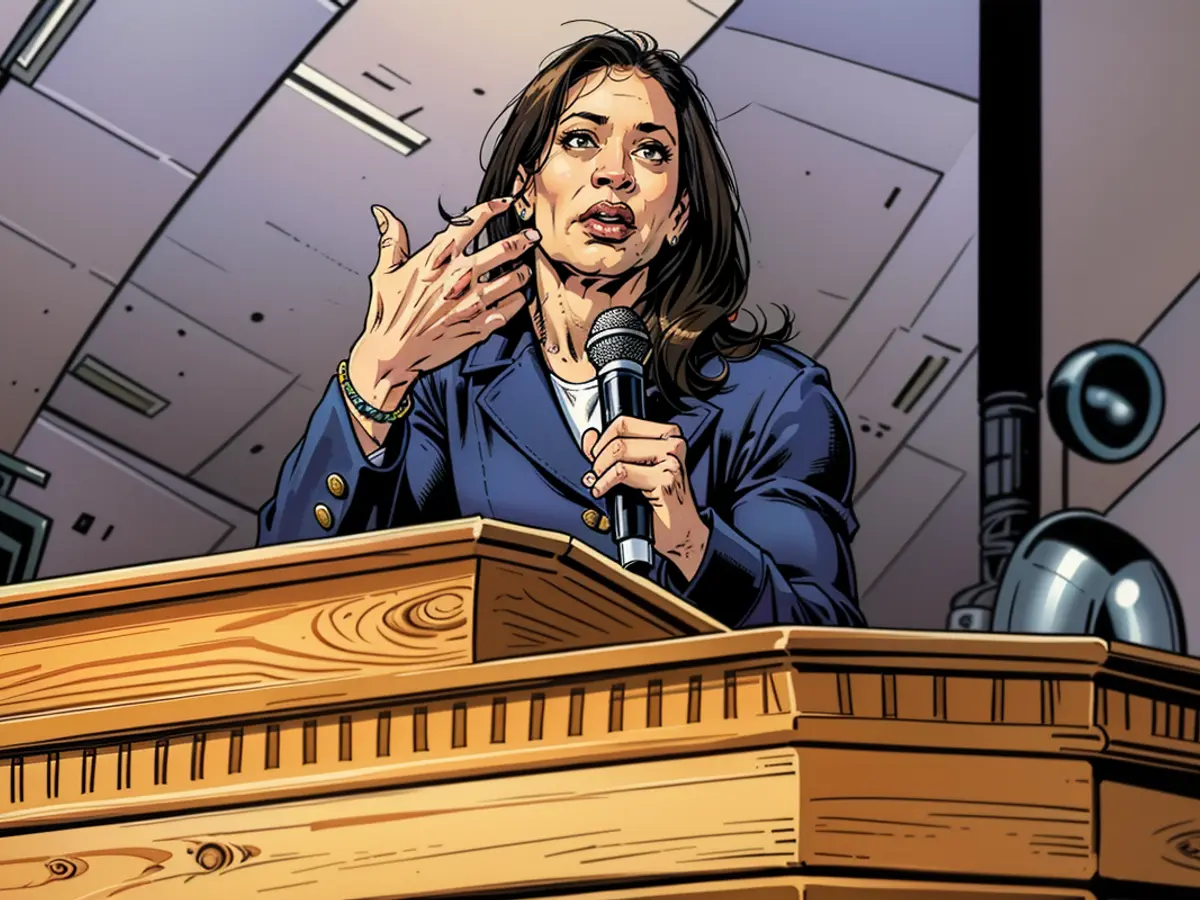Over a thousand religious authorities endorse Harris as the vice president candidate leverages her religious beliefs to motivate Black voting blocs
Among those backing the vice president is Reverend William J. Barber II, a North Carolina-based religious figure who has urged the Biden administration to advocate for a truce in Gaza.
"In a situation like this, it's essential to speak out and make it clear that every voter must take a stance, and my stance is to oppose the harmful politics that Donald Trump and the MAGA movement have instigated by backing the team capable of countering this potential threat of American authoritarianism," Barber expressed to CNN, emphasizing that he supports Harris in his personal capacity.
The endorsements come as Harris has been emphasizing her faith and her connections with Black faith communities as she aims to mobilize Black voters for her final push.
The vice president, who attended a Black Baptist church in Oakland during her upbringing, shared the stage with her longtime pastor, Reverend Amos C. Brown III of San Francisco’s Third Baptist Church, as part of a "souls to the polls" campaign in Georgia last weekend, a widespread initiative to engage Black churchgoers in crucial states.
According to a senior campaign official, Harris will continue to underscore the significance of merging faith with action during her campaign at a Black church in West Philadelphia on Sunday.
Harris has referenced her faith repeatedly throughout her campaign. During a CNN town hall last week, she explained that after President Joe Biden informed her he would not seek reelection, she reached out to Brown for guidance and prayer. When asked by CNN’s Anderson Cooper if she prays daily, Harris replied that she does.
"Sometimes twice a day," she stated. "I was brought up to believe in a compassionate God, to believe that your faith serves as an action."
Former President Donald Trump has also targeted religious voters and rallied White evangelicals, historical allies of the Republican Party, to vote. Following the former president's close call with an assassination attempt in Butler, Pennsylvania, in July (where a rally attendee was fatally shot), Trump and his followers arguably attributed his survival to divine intervention.
In his appeal to religious voters, Trump has touted his commitment to protecting religious freedoms and recognized his nomination of three conservatives to the United States Supreme Court, which paved the way for repealing federal abortion regulations. Trump will address the National Faith Advisory Board summit in Georgia on Monday.
While campaigning in North Carolina last week, Trump contested, without evidence, that Harris is "harmful to religion" as he addressed a gathering of religious leaders.

In Michigan, the former president has sought the support of Muslim leaders as part of his mission to appeal to disillusioned Muslim and Arab American voters over the Biden administration's approach to Israel's conflict in Gaza. Trump invited several Muslim leaders on stage during a rally in suburban Detroit on Saturday.
“Jews, Catholics, evangelicals, Mormons, Muslims are joining our cause in larger numbers than ever before and now the most remarkable thing is happening. We’re winning overwheming support from the Muslim and Arab voters right here in Michigan. Can you even believe this?” the former president declared.
Barber, who participated in a vigil outside the White House in the fall to call for a truce in Gaza, has relentlessly expressed concerns about Democrats focusing on the middle class at the expense of the poor and low-wage workers. Yet, Barber, co-chair of the Poor People's Campaign, told CNN the current situation demands clarity.
“There's no middle ground when it comes to authoritarianism,” Barber articulated in an interview. “There ultimately comes a point where you have to be straightforward as an individual and trust that other moral and religious leaders will follow suit.”
For those religious leaders withholding support for Harris over the administration's stance on Middle East conflicts, Barber recommended they ponder, “Who can you trust to communicate and negotiate effectively?”
Additional faith leaders endorsing Harris on Sunday in their own capacities include Reverend Kevin R. Johnson, senior pastor of the Abyssinian Baptist Church in New York City; Rev. Teresa L. Smallwood, vice president and dean of academic affairs at United Lutheran Seminary in North Carolina; and Rev. Andrea C. White, associate professor of theology and culture at Union Theological Seminary in New York City.
The “souls to the polls” initiative is being spearheaded by the Harris campaign’s National Advisory Board of Black Faith Leaders, which has served as a sounding board for the vice president and an organizing force in various cities where members wield influence.
Bishop Leah Daughtry, a member of the advisory board, noted that faith leaders are actively spreading the word in support of the Democratic nominee after landing in Michigan last Saturday.
“Harris' faith lies at the heart of all her policy initiatives,” Daughtry remarked.

In light of the political landscape, it's crucial for religious figures like Reverend Barber to advocate for policies that promote justice and equality. Barber, in his personal capacity, has endorsed Vice President Harris due to her commitment to merging faith with action.








